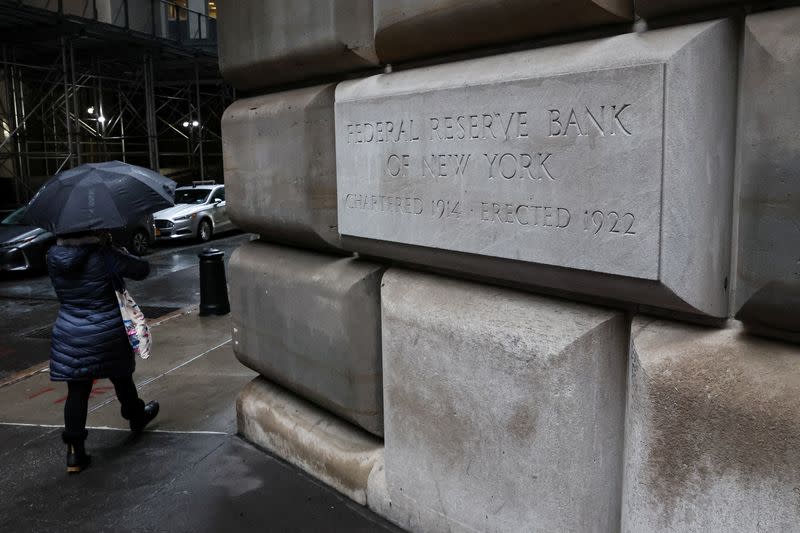Ex-bank executive steps down from NY Fed board

By Michael S. Derby
(Reuters) - Several days after ending his leadership role at a small New York State bank holding company, Thomas Murphy has also exited the board that oversees the Federal Reserve Bank of New York, the central bank said Tuesday.
The regional Fed said Murphy stepped down from one of its New York Fed director slots reserved for bankers. Murphy had been the president and chief executive officer for Arrow Financial Corp until May 12, and served in the same roles at its Glens Falls National Bank and Trust Co subsidiary. Arrow, a bank holding company, also owns Saratoga National Bank and Trust Co.
Murphy had been a Class A director on the New York Fed board since January 2021. According to a press release from Arrow Financial Company on Monday, Murphy "terminated his employment"
at the company. It did not state a reason and the company did not immediately respond to a request for comment.
His departure from Arrow was announced the same day the company received a noncompliance notice from Nasdaq, where its shares are listed, for failing to file its recent quarterly and annual results in a timely fashion.
Each of the 12 regional Fed banks are quasi-private institutions that operate under the central bank Board of Governors in Washington, even as they are overseen by nine-person boards made up of a mix of local bankers, community leaders and businesspeople.
These boards' main role is to help select new presidents when vacancies arise. Fed bank presidents have also said their boards provide local economic intelligence and advice on running large institutions.
The presence of bankers on regional Fed boards has long been a source of controversy as it places companies regulated by the Fed in an oversight role of their regulator. Some years ago this class of directors was removed from helping to select new leaders.
In March, Silicon Valley Bank CEO Greg Becker left the San Francisco Fed's board as his bank imploded. The bank failure helped kick off a still bubbling banking sector crisis that led the Fed to extend massive liquidity while facing ongoing questions over its regulation of banks.
The New York Fed has had its own troubles with bankers on its board in years past. Its board chair in 2009 resigned amid questions about his purchases of stock in Goldman Sachs. The chairmanship then went to a union leader.
In testimony to be presented at a Senate panel on Wednesday, Peter Conti-Brown, a financial historian and legal scholar at the University of Pennsylvania, called the presence of bankers on Fed boards "nefarious."
"Their presence invites mischief. Either their presence matters, which means they have influence over their own supervisors, whatever that influence may be," Conti-Brown wrote. "Or their presence doesn’t matter, in which case they give us the appearance of conflicts that invite conspiracies and destabilize confidence in the entire system."
Even non-bankers have created challenges for the boards. In 2019, Anne Pramaggiore, CEO of the utilities unit of Exelon Corp, stepped down as the Chicago Fed board of directors chair as her firm was being investigated over lobbying activities. She was convicted earlier this month on a number of charges, including bribery.
The setup of the regional Fed board of directors is determined by law and not the central bank. Some Fed critics have called for board overhauls or doing away with them, reckoning that given the Fed's public mission, all of its parts should be brought fully into government.
(Reporting by Michael S. Derby and Dan Burns; Editing by Chizu Nomiyama, Richard Chang and Daniel Wallis)
